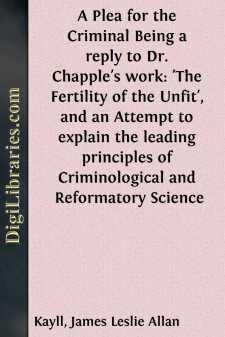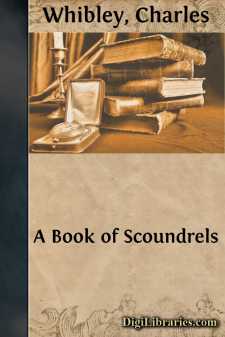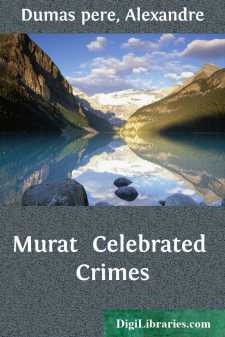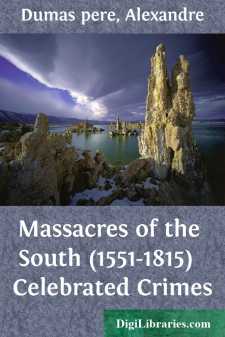True Crime
- General 29
True Crime Books
Sort by:
by:
Emerson Hough
PREFACE In offering this study of the American desperado, the author constitutes himself no apologist for the acts of any desperado; yet neither does he feel that apology is needed for the theme itself. The outlaw, the desperado—that somewhat distinct and easily recognizable figure generally known in the West as the "bad man"—is a character unique in our national history, and one whose like...
more...
by:
John Thomson
y Son get Money, said a wiser Man than you or I, honest Reader: That is the Precept; but he went no farther, leaving the Business of Committee Men, Ways and Means, &c. to the peculiar Turn of Thought, or Biass of Invention of every individual Money-Getter. Of all the Methods made use of to attain this great End, I believe it will be allow'd that he who gains his point the easiest way, is the...
more...
INTRODUCTION. This little book presents an appeal to society to consider its criminals with greater charity and with more intelligent compassion. No other plea is advanced than that the public mind should rid itself of all prejudices and misunderstandings, and should make an honest endeavour to understand what the criminal is, why he is a criminal and what, notwithstanding, are his chances in social...
more...
by:
Thomas Holmes
CHAPTER I. MY FRIENDS AND ACQUAINTANCES The odds and ends of humanity, so plentiful in London's great city, have for many years largely constituted my circle of friends and acquaintances. They are strange people, for each of them is, or was, possessed of some dominating vice, passion, whim or weakness which made him incapable of fulfilling the ordinary duties of respectable citizenship. They had...
more...
by:
Charles Whibley
INTRODUCTION There are other manifestations of greatness than to relieve suffering or to wreck an empire. Julius Cæsar and John Howard are not the only heroes who have smiled upon the world. In the supreme adaptation of means to an end there is a constant nobility, for neither ambition nor virtue is the essential of a perfect action. How shall you contemplate with indifference the career of an artist...
more...
CHAPTER I. THE STATISTICS OF CRIME. It is only within the present century, and in some countries it is only within the present generation, that the possibility has arisen of conducting the study of criminal problems on anything approaching an exact and scientific basis. Before the introduction of a system of criminal statistics—a step taken by most peoples within the memory of men still living—it...
more...
TWELVE CAUSES OF DISHONESTY Only extraordinary circumstances can give the appearance of dishonesty to an honest man. Usually, not to seem honest, is not to be so. The quality must not be doubtful like twilight, lingering between night and day and taking hues from both; it must be day-light, clear, and effulgent. This is the doctrine of the Bible: Providing for honest things, not only in the sight of...
more...
I—TOULON On the 18th June, 1815, at the very moment when the destiny of Europe was being decided at Waterloo, a man dressed like a beggar was silently following the road from Toulon to Marseilles. Arrived at the entrance of the Gorge of Ollioulles, he halted on a little eminence from which he could see all the surrounding country; then either because he had reached the end of his journey, or because,...
more...
If our readers, tempted by the Italian proverb about seeing Naples and then dying, were to ask us what is the most favourable moment for visiting the enchanted city, we should advise them to land at the mole, or at Mergellina, on a fine summer day and at the hour when some solemn procession is moving out of the cathedral. Nothing can give an idea of the profound and simple-hearted emotion of this...
more...
CHAPTER I It is possible that our reader, whose recollections may perhaps go back as far as the Restoration, will be surprised at the size of the frame required for the picture we are about to bring before him, embracing as it does two centuries and a half; but as everything, has its precedent, every river its source, every volcano its central fire, so it is that the spot of earth on which we are going...
more...











